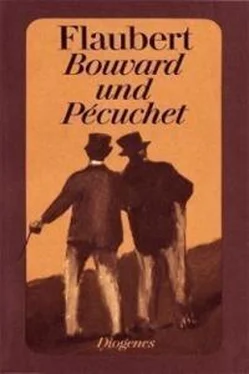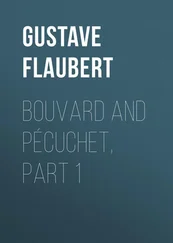As the term that describes an incident does not embrace it in all its aspects, they try to employ only abstract words, so that in place of saying, "Let us make a tour," "It is time to dine," "I have the colic," they give utterance to the following phrases: "A promenade would be salutary," "This is the hour for absorbing aliments," "I experience a necessity for disburdenment."
Once masters of logic, they passed in review the different criterions; first, that of common sense.
If the individual can know nothing, why should all individuals know more? An error, were it a hundred thousand years old, does not by the mere fact of its being old constitute truth. The multitude invariably pursues the path of routine. It is, on the contrary, the few who are guided by progress.
Is it better to trust to the evidence of the senses? They sometimes deceive, and never give information save as to externals. The innermost core escapes them.
Reason offers more safeguards, being immovable and impersonal; but in order that it may be manifested it is necessary that it should incarnate itself. Then, reason becomes my reason; a rule is of little value if it is false. Nothing can show such a rule to be right.
We are recommended to control it with the senses; but they may make the darkness thicker. From a confused sensation a defective law will be inferred, which, later, will obstruct the clear view of things.
Morality remains.
This would make God descend to the level of the useful, as if our wants were the measure of the Absolute.
As for the evidence—denied by the one, affirmed by the other—it is its own criterion. M. Cousin has demonstrated it.
"I see no longer anything but revelation," said Bouvard. "But, to believe it, it is necessary to admit two preliminary cognitions—that of the body which has felt, and that of the intelligence which has perceived; to admit sensation and reason. Human testimonies! and consequently open to suspicion."
Pécuchet reflected—folded his arms. "But we are about to fall into the frightful abyss of scepticism."
In Bouvard's opinion it frightened only weak brains.
"Thank you for the compliment," returned Pécuchet. "However, there are indisputable facts. We can arrive at truth within a certain limit."
"Which? Do two and two always make four? Is that which is contained in some degree less than that which contains it? What is the meaning of nearly true, a fraction of God, the part of an indivisible thing?"
"Oh, you are a mere sophist!" And Pécuchet, annoyed, remained for three days in a sulk.
They employed themselves in running through the contents of several volumes. Bouvard smiled from time to time, and renewing the conversation, said:
"The fact is, it is hard to avoid doubt; thus, for the existence of God, Descartes', Kant's, and Leibnitz's proofs are not the same, and mutually destroy one another. The creation of the world by atoms, or by a spirit, remains inconceivable. I feel myself, at the same time, matter and thought, while all the time I am ignorant of what one or the other really is. Impenetrability, solidity, weight, seem to me to be mysteries just as much as my soul, and, with much stronger reason, the union of the soul and the body. In order to explain it, Leibnitz invented his harmony, Malebranche premotion, Cudworth a mediator, and Bossuet sees in it a perpetual miracle."
"Exactly," said Pécuchet. And they both confessed that they were tired of philosophy. Such a number of systems confused them. Metaphysics is of no use: one can live without it. Besides, their pecuniary embarrassments were increasing. They owed one bill to Beljambe for three hogsheads of wine, another to Langlois for two stone of sugar, a sum of one hundred francs to the tailor, and sixty to the shoemaker.
Their expenditures were continuous, of course, and meantime Maître Gouy did not pay up.
They went to Marescot to ask him to raise money for them, either by the sale of the Ecalles meadow, or by a mortgage on their farm, or by giving up their house on the condition of getting a life annuity and keeping the usufruct.
In Marescot's opinion this would be an impracticable course; but a better means might be devised, and they should be informed about it.
After this they thought of their poor garden. Bouvard undertook the pruning of the row of elms and Pécuchet the trimming of the espalier. Marcel would have to dig the borders.
At the end of a quarter of an hour they stopped. The one closed his pruning–knife, the other laid down his scissors, and they began to walk to and fro quietly, Bouvard in the shade of the linden trees, with his waistcoat off, his chest held out and his arms bare; Pécuchet close to the wall, with his head hanging down, his arms behind his back, the peak of his cap turned over his neck for precaution; and thus they proceeded in parallel lines without even seeing Marcel, who was resting at the side of the hut eating a scrap of bread.
In this reflective mood thoughts arose in their minds. They grasped at them, fearing to lose them; and metaphysics came back again—came back with respect to the rain and the sun, the gravel in their shoes, the flowers on the grass—with respect to everything. When they looked at the candle burning, they asked themselves whether the light is in the object or in our eyes. Since stars may have disappeared by the time their radiance has reached us, we admire, perhaps, things that have no existence.
Having found a Raspail cigarette in the depths of a waistcoat, they crumbled it over some water, and the camphor moved about. Here, then, is movement in matter. One degree more of movement might bring on life!
But if matter in movement were sufficient to create beings, they would not be so varied. For in the beginning lands, water, men, and plants had no existence. What, then, is this primordial matter, which we have never seen, which is no portion of created things, and which yet has produced them all?
Sometimes they wanted a book. Dumouchel, tired of assisting them, no longer answered their letters. They enthusiastically took up the new question, especially Pécuchet. His need of truth became a burning thirst.
Moved by Bouvard's preachings, he gave up spiritualism, but soon resumed it again only to abandon it once more, and, clasping his head with his hands, he would exclaim:
"Oh, doubt! doubt! I would much prefer nothingness."
Bouvard perceived the insufficiency of materialism, and tried to stop at that, declaring, however, that he had lost his head over it.
They began with arguments on a solid basis, but the basis gave way; and suddenly they had no longer a single idea—just as a bird takes wing the moment we wish to catch it.
During the winter evenings they chatted in the museum at the corner of the fire, staring at the coals. The wind, whistling in the corridor, shook the window–panes; the black masses of trees swayed to and fro, and the dreariness of the night intensified the seriousness of their thoughts.
Bouvard from time to time walked towards the further end of the apartment and then came back. The torches and the pans on the walls threw slanting shadows on the ground; and the St. Peter, seen in profile, showed on the ceiling the silhouette of his nose, resembling a monstrous hunting–horn.
They found it hard to move about amongst the various articles, and Bouvard, by not taking precautions, often knocked against the statue. With its big eyes, its drooping lip, and its air of a drunkard, it also annoyed Pécuchet. For a long time he had wished to get rid of it, but through carelessness put it off from day to day.
One evening, in the middle of a dispute on the monad, Bouvard hit his big toe against St. Peter's thumb, and turning on him in a rage, exclaimed:
"He plagues me, this jackanapes! Let us toss him out!"
Читать дальше








![Гюстав Флобер - Закат Карфагена [Сборник]](/books/414440/gyustav-flober-zakat-karfagena-sbornik-thumb.webp)


